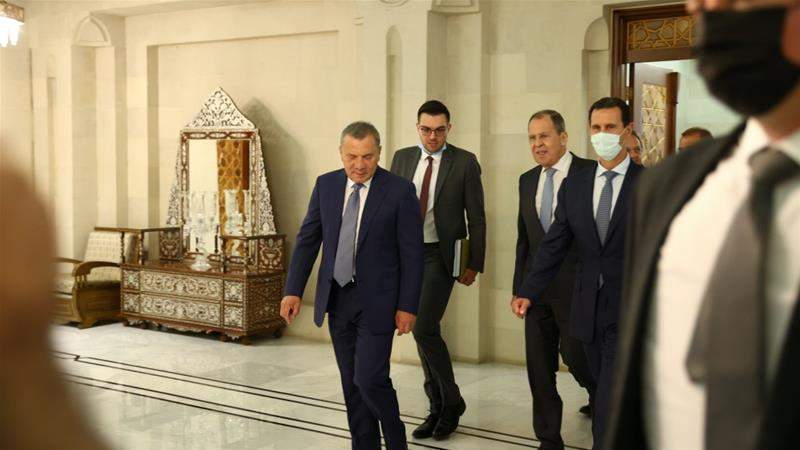Syria seeks more Russian investment as US sanctions lash economy

President Bashar al-Assad on Monday said he wants to expand business ties with Russia to help Damascus cope with new United States sanctions on Syria's already crippled economy that threaten to undermine military gains achieved with Moscow's help.
Al-Assad, speaking in comments made during a meeting in Damascus with Russian Deputy Prime Minister Yuri Borisov and Minister of Foreign Affairs Sergey Lavrov and carried by state media, said he wanted Russian investment in key areas of the economy.
Officials from Syria and Russia, whose military support since 2015 helped Damascus reverse gains made by armed groups, have said the two sides plan to boost trade ties and will review energy, mining and power projects.
Borisov told a televised news conference Moscow had presented in July an agreement to expand economic ties that was being studied by Damascus. He said he expected it would be sealed in December, during his next visit to Syria's capital.
"Russia turned the tide for [al-]Assad and with the regime now facing its gravest challenges, Moscow is in a better position than any other time to further squeeze [al-]Assad," said one Western diplomat who follows Syria.
Although al-Assad has now regained most of the territory he lost, the economy is in tatters, leaving many Syrians in poverty as the currency has lost 80 percent of its value.
Russia has criticised the new US sanctions that took effect in June under the so-called Caesar Act.
Washington said the sanctions, which penalise foreign firms dealing with Syrian government entities, aim to cut off revenue for al-Assad's government and push him back into UN-led talks to end the conflict.
Syria is pinning its hopes on Russia, its biggest foreign ally, to help it shore up its economy. Syria's main regional ally, Iran, is itself also struggling to cope under a separate round of US sanctions.
Hussam Taleb, a Syrian pro-government analyst, told Syrian state television the Russian visit would anger Washington which he said was "fighting us in our livelihood by passing the Caesar Act to deprive us of our wealth".
Western diplomats say Russian President Vladimir Putin's military involvement in Syria, its biggest Middle East intervention in decades, secured Moscow important regional influence and a bigger foothold in a naval base in Syria's Tartus port.
Photo: Russian Deputy Prime Minister Yuri Borisov, Russian foreign minister Sergey Lavrov, Syrian President Bashar al-Assad and other officials on Monday attend a meeting in Damascus, Syria [Reuters via Russian Foreign Ministry]




